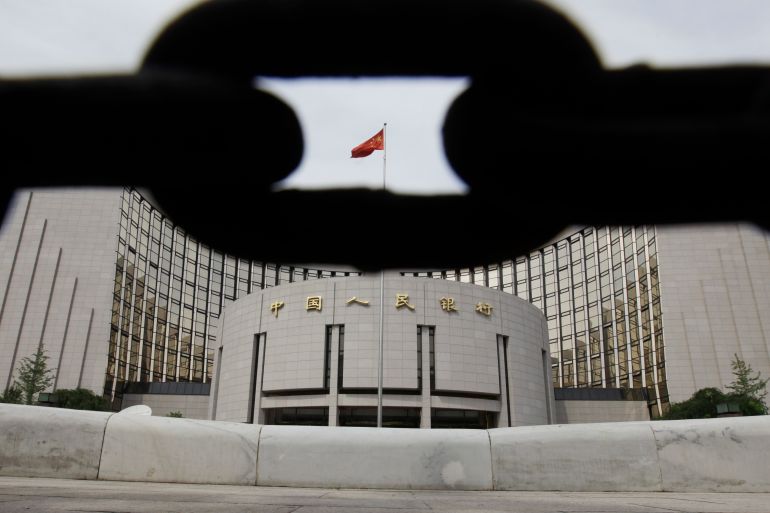China’s central bank cuts key interest rate amid concerns for economy
People’s Bank of China’s decision to leave 5-year lending rate unchanged greeted with disappointment by markets.

China’s central bank has cut a key interest rate amid concerns about the post-pandemic recovery of the world’s second-largest economy.
The People’s Bank of China on Monday cut the one-year loan prime rate, a benchmark for corporate loans, from 3.55 percent to 3.45 percent.
Keep reading
list of 4 itemsWhy are central banks hoarding gold?
Russia’s central bank hikes rates to 12 percent to halt rouble’s slide
Nigeria files 20 new charges against suspended central bank chief
The central bank held the five-year LPR, which is used to price mortgages, steady at 4.2 percent.
China’s post-COVID recovery has been hampered by weakening demand for Chinese goods due to the uncertain global economic outlook and domestic challenges ranging from a slumping property market to a record-low birth rate.
Growing fears that property giant Country Garden may default on its debt have raised concerns about potential contagion in China’s financial system after major developer Evergrande defaulted on more than $300bn in debt in 2021.
China last week also announced it would no longer publish detailed youth unemployment figures after the jobless rate hit 21.3 percent in June.
Monday’s rate cut was greeted with disappointment by some market analysts, who have been holding out hope for bolder measures to boost the economy.
Hong Kong shares on Monday dipped 1.4 percent, while the Shanghai stock market was down 0.6 percent.
“Probably China limited the size and scope of rate cuts because they are concerned about downward pressure on the yuan,” Masayuki Kichikawa, chief macro strategist at Sumitomo Mitsui DS Asset Management, told the Reuters news agency.
“Chinese authorities care about currency market stability.”
Goldman Sachs economist Maggie Wei in a note described the LPR cut as “disappointing”, adding that it “would not help with building confidence” as Chinese authorities pursue an economic recovery.
The move “can even backfire if market participants interpret these easing measures as policymakers’ unwillingness to deliver even moderate policy stimulus”, Wei said.
Beijing last week acknowledged economic “difficulties”, but blasted Western commentators for doubting the country’s growth prospects.
“Eventually, they will for sure be proven wrong,” Wang Wenbin, a Ministry of Foreign Affairs spokesman, said.